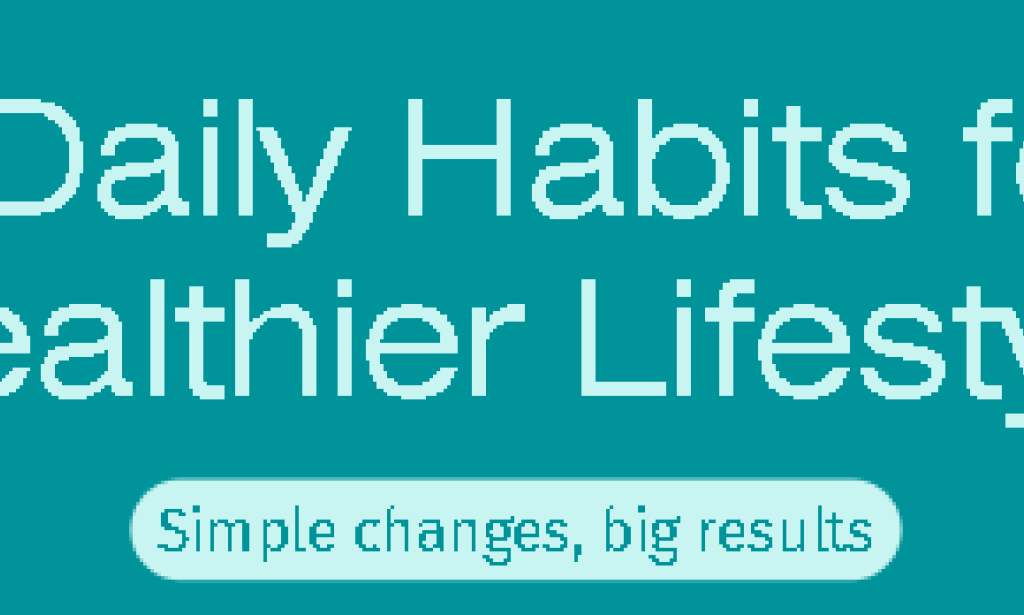Start Your Day With Water
Most people reach for coffee as soon as they wake up, but your body needs hydration first. After 7–8 hours of sleep, your body is naturally dehydrated. Drinking one or two glasses of water in the morning:
-
Activates your metabolism
-
Flushes out toxins
-
Boosts energy levels
Pro tip: Keep a glass of water by your bed so you never forget.
Move Your Body Daily (Even If It’s Just Walking)
Exercise doesn’t have to mean heavy workouts or running marathons. Simple movement—like walking 20–30 minutes a day—improves heart health, digestion, and mood. Studies show that even light activity lowers the risk of chronic diseases.
Try these simple tricks:
-
Take the stairs instead of the elevator
-
Walk during phone calls
-
Stretch for 5 minutes every hour if you sit at a desk
Consistency matters more than intensity.
Prioritize Quality Sleep
Sleep is one of the most underrated health tools. Poor sleep increases stress, weakens immunity, and affects focus. Aim for 7–8 hours of restful sleep each night.
Tips for better sleep hygiene:
-
Avoid screens 1 hour before bed
-
Create a calming bedtime routine (reading, journaling, meditation)
-
Keep your room dark and cool
Think of sleep as a daily reset for your body and brain.
Choose Whole Foods Over Processed Foods
Nutrition plays a huge role in energy, mood, and long-term health. Instead of extreme diets, focus on adding whole, nutrient-rich foods to your plate:
-
Fruits and vegetables
-
Lean proteins (fish, chicken, beans)
-
Whole grains (oats, quinoa, brown rice)
-
Healthy fats (avocado, nuts, olive oil)
By focusing on what you add rather than what you restrict, unhealthy cravings naturally reduce.
Practice Mindful Breathing or Meditation
Stress is one of the biggest factors affecting lifestyle today. Just 5–10 minutes of deep breathing or meditation can:
-
Reduce anxiety
-
Improve concentration
-
Lower blood pressure
Try the 4-7-8 breathing technique: Inhale for 4 seconds, hold for 7, exhale for 8. Repeat 4 times before bed for better sleep.
Limit Screen Time—Especially at Night
Screens expose you to blue light, which interferes with melatonin production and disrupts sleep. Excessive scrolling also increases anxiety and reduces productivity.
Instead of endless late-night scrolling:
-
Read a physical book
-
Write down 3 things you’re grateful for
-
Listen to calming music or a podcast
Your mind will thank you.
Stay Social and Build Relationships
Health isn’t only about the body—it’s also about emotional well-being. Strong social connections reduce stress and increase happiness.
Make time for:
-
Catching up with family
-
Meeting a friend for coffee
-
Joining a local hobby group
Healthy relationships are as important as healthy food.
Practice Gratitude Daily
Gratitude has been shown to boost mood and reduce stress. Take just 2 minutes a day to write down three things you’re thankful for.
It might feel small, but over time, it trains your brain to focus on positivity and resilience.
Keep Your Body Active Throughout the Day
Even if you exercise in the morning, sitting for long hours can harm your health. Research calls this the “sitting disease.” Combat it by adding micro-movements throughout the day:
-
Stand up every 30 minutes
-
Stretch your shoulders and back
-
Use a standing desk if possible
These small movements protect your joints, muscles, and posture.
Focus on Consistency, Not Perfection
Many people fail because they try to change everything at once. True lifestyle transformation comes from small, consistent changes over time.
Instead of aiming for perfection:
-
Pick 2–3 habits from this list to start with
-
Build them into your daily routine
-
Add more habits once the first ones feel natural
Health is a long-term journey, not a one-week challenge.


You must be logged in to post a comment.